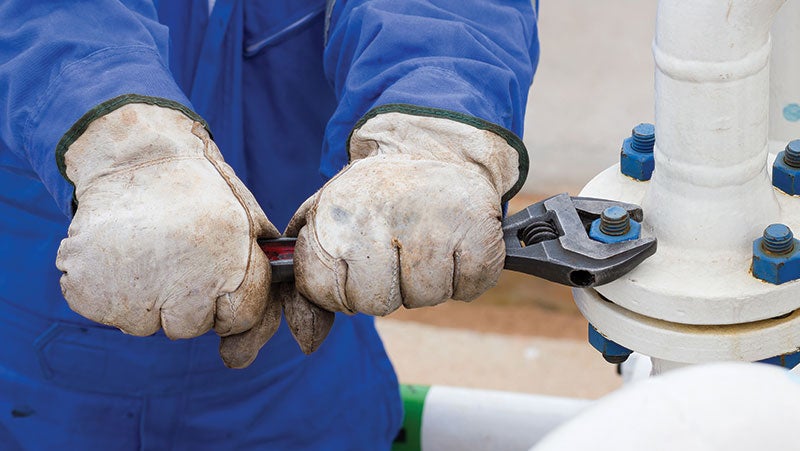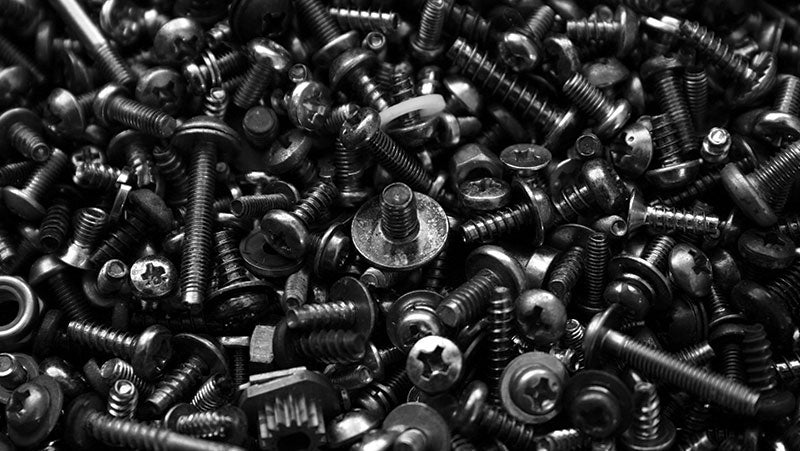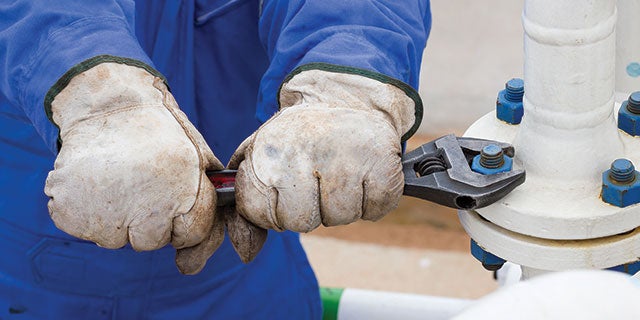Fasteners like screws, bolts, nuts and washers are critical for the longevity and structural integrity of automobiles, machinery, construction frameworks, furniture and heavy-duty equipment.

Regardless of their composition - stainless alloys, titanium, aluminum, carbon steel - play a crucial role in ensuring that these mission-critical components are protected from mechanical stress, friction, chemical exposure and corrosive conditions to maintain their safety and performance.
Manufacturers of all types of construction fasteners have a lot of choices when it comes to fastener coating brands, chemistry and application methods.
These decisions are based on a variety of factors, including:
- Operating environment: Will fastener be used for interior, exterior or offshore application and will it be exposed to extreme heat or cold, salt air or humidity or corrosive chemicals?
- Lubrication needs: Will the fastener be exposed to friction and wear due to vibrations, movement and heavy loads?
- Performance demands: What are the needs in terms of load bearing, overall strength, salt spray requirements, chemical resistance and friction factors?
- Aesthetics: Particularly for consumer products, color and design need to be considered for visible fasteners.
- Compatibility: Is the coating compatible with the fastener material? Selecting the best combination of materials and coating chemistry ensures optimal performance and longevity.
PPG helps manufacturers implement and manage start-to-finish fastener-coating processes that optimize reliability and safety across automotive, industrial, commercial, marine and offshore settings in a wide variety of industries.
PPG History of Fastener Coatings
To broaden their fastener coating production capabilities and customer service, PPG opened PPG Alltech in Taiwan, one of the world's top fastener producer, in 2006. The facility serves the fastener and related parts industry with PPG pretreatment solutions, including pretreatment products, electrocoat and liquid dip-spin coatings.
Then in 2019, PPG made another big move when the company acquired Whitford Worldwide, a global manufacturer that specialized in low-friction and nonstick coatings for industrial, automotive and consumer products. The move brought Whiteford's leading industrial coating, XYLAN®, into the PPG fastener coating fold and with it, new opportunities in the oil and gas industry where Whitford was a leading player.

Coating Application Methods for Fasteners
Two of the most common methods for applying coatings to fasteners are liquid dip-spin or electrocoat. Which method used is determined by equipment capabilities, cost considerations and environmental factors.
The efficiency of e-coat
With electrocoating (e-coat), fasteners are immersed in a water-based coating bath that is then electrically charged, which helps the coating particles move to the part and adhere, even in recessed areas. It can be used alone or in combination with other technologies. In fasteners, it is typically the final layer after pretreatment or before a liquid dip-spin topcoat application.
The electrocoating process is considered to be one of the sustainably advantaged finishing technologies since there are fewer PFAS chemicals used compared to some liquid coatings and minimal waste is produced in the process.
"With e-coat, we can control film thickness down to the micron for an optimal film build," explained Kevin Koch, who has been in fastener manufacturing for over 25 years, 17 of them with PPG as the Global Sales Manager for PPG Alltech. "Our efficiency with e-coat for fasteners is about 99% so there is very little waste in the process."
For fasteners, coating intricate areas like the drive and threads are important, it's often hard to spin excess paint from these areas, making them unusable. A quality electrocoating process does not fill recessed heads or threads and can be torque modified.
PPG pioneered the technology in 1963 and today, PPG ELECTROPOLYSEAL® -ecoat, designed for bulk applications, is among the world's leading e-coat products on the market today. This electrocoat solution is typically deposited over zinc phosphate, spun or plated surfaces to offer excellent corrosion resistance without the use of chrome or lead in the finish.
Liquid dip-spin applications for fasteners
With liquid dip-spin application, fasteners are submerged into a coating solution and then spun it at a high speed to remove any excess coating. This method, typically outsourced to a coating applicator, is effective for smaller parts and is also suitable for bulk finishing. This method is very amendable to creating the ideal film thickness that the customer needs through thin layers.
While electrocoat generally comes in a limited color palette dominated by blacks, greys and shades of colors, liquid dip-spin paints have more color flexibility. This is an important advantage, particularly for consumer applications.
PPG XYLAN® liquid coatings can be one-, two- (primer and top-coat), and three- (primer, mid-coat, top-coat) coat conventional and reinforced (filled) coating systems. They are engineered to improve the functionality, performance and lifespan of screws and fasteners.
Other PPG fastener solutions include the PPG SPINCOAT family of zinc-rich finishes, RUSTAREST™ 53253 oil pretreatments and PPG ULTRAX® alkaline cleaners.
PPG Fastener Coating Portfolio
With a vast portfolio versatile powder, liquid, pretreatment and electrocoat technologies that offers protection at every layer, from substrate preparation to topcoat, PPG solutions can meet the demands of global manufacturers of construction fasteners, structural fasteners and automotive fasteners.

